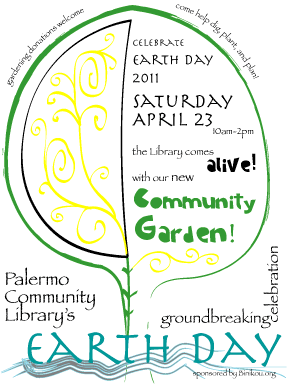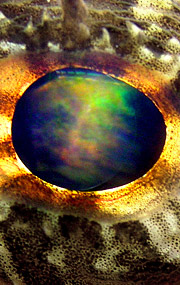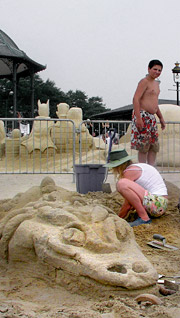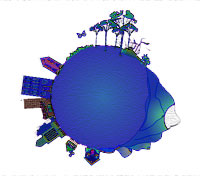Binikou is sponsoring an event for Earth Day, up here in little old Palermo, Maine! Here’s the info for any locals who might be interested:
The Palermo Community Library celebrates Earth Day 2011 on Saturday April 23, from 10am to 2pm, with a groundbreaking event for the brand new Community Garden! Come help dig, plant, and plan for a living library, filled with a diverse range of herbs, fruit trees, flowers, and nutritious wild edibles.
Donations of plants, gardening supplies, and seeds are more than welcome! You can even help us plan and build a wooden bridge over the stream that runs through the garden. Learn a little about permaculture planing, food forests, plants that local Native Americans used, and all kinds of things about both wild and tame gardening. Bring your own gardening stories to share with others, too! Books and other media on plants, gardening, and being a steward of the Earth will be showcased, and you might find something exciting to borrow, and enjoy at home, as well.
If you want to donate materials for the new garden before or after the 23, contact Turil Cronburg at thewiseturtle@gmail.com, or at 993-2490. Otherwise just show up with your donations on the 23 and we’ll put it all to good use right away! Extra tools, perennials, and garden stones are especially useful.
We might also have some free seeds and seedlings to give away so that you might be able to start your own little garden, too, to make your part of the Earth a little more colorful and delicious!
Also, take a look at some inspiration for creating your own community spaces over at Reclaim the Commons! at Turil.wordpress.com.




